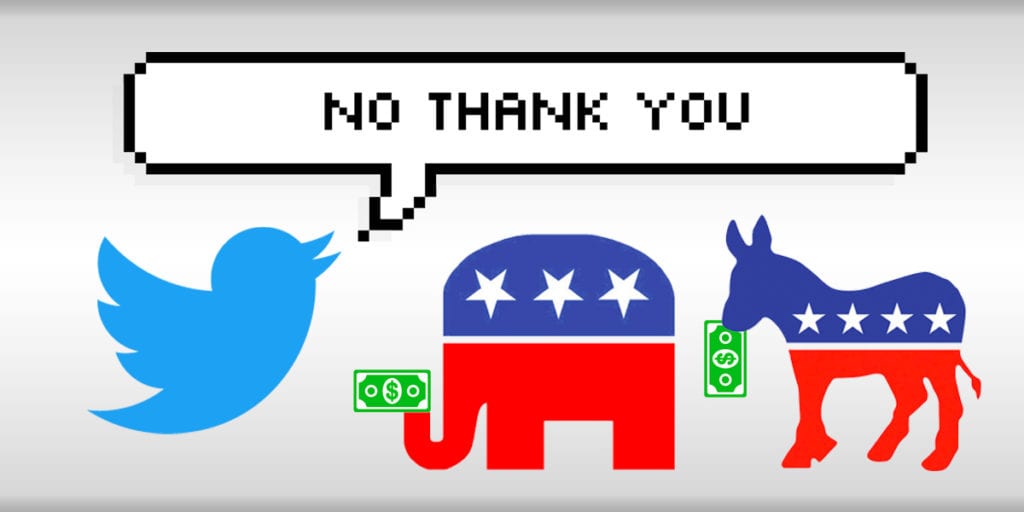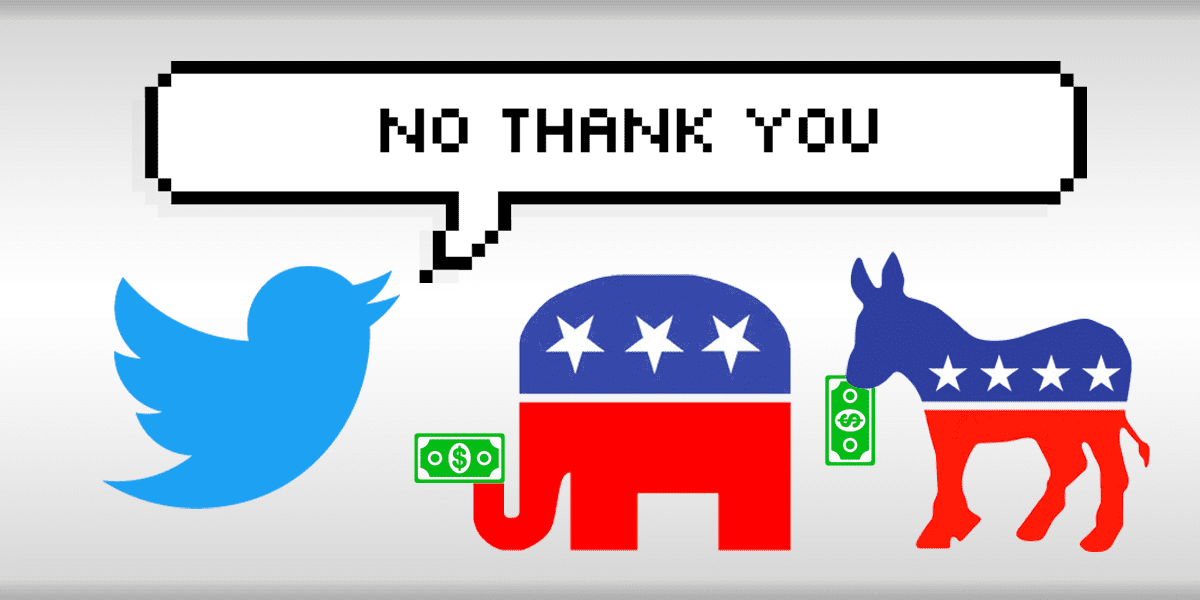Gotta love a few slow social media weeks. Haha, slow? I think not. Mark Z. and Jack D. have grabbed our attention with their high-stakes social media chess match, battling it out over political and cause-related social issue ad rules and regs. So, what do brands need to know, and how can they prepare to navigate these recent paid social media platform changes in 2020?
Firstly, Facebook recently rolled out an updated disclaimer process which is a new verification procedure for enabling businesses to run ads relating to social issues, elections, or politics within the United States. This new master verification process is aimed at giving people more insight into the organizations behind the ads before they receive approval for their “Paid for by XYZ Brand or Organization” disclaimer. Facebook claims that requiring old and new advertisers to go through this more detailed verification process will “create a new standard of authenticity for ads…in the United States on Facebook and Instagram.”
To keep a stake in the 2020 paid social ad game, expect Facebook to continue rolling out other regulations and features, such as limiting the amount of ads a given brand can run, dynamic ad headline testing functionality, human ad reviews, etc.
Let’s not forget Instagram, of course—also owned by F A C E B O O K (hoping for minimal #OkBoomer responses for that)—and its knightly effort to test hiding “likes” from the public eye in the you-ess-of-eh. Per the announcement and corresponding news beat, this change is designed to reduce the focus on social comparison and anxiety-driving vanity metrics that come with publicly quantifying positive sentiment on the platform. As they say in their disclaimer: “We want your followers to focus on what you share, not how many likes your posts get. During this test, only the person who shared the post will see the total number of likes it gets.”
Losing the likes will have a huge effect on the future of brand influencers, for whom we’re boosting more and more content, seeing ~10x higher engagement rates. This will without a doubt drive an increase in potential (algorithm-boosted) comments for boost-loving brands and influencer talent alike (driving an increased need for community management), as well as increased Story competition—all as well leading to more website traffic and social e-commerce without the distraction of counting everyone else’s little hearts.
More recently too, Twitter made a counter move and announced its stance to completely remove political advertising from the platform, Per the policy released on November 15, advertising is prohibited for any “content that references a candidate, political party, elected or appointed government official, election, referendum, ballot measure, legislation, regulation, directive, or judicial outcome”.
Our Twitter rep gave us some more detail: “For Ketchum clients, this means that non-political advertisers can continue to run ads as long as they do not include language around legislative calls to action. For caused-based ads, there will be a new certification process, with more details now available here, and will a limitation to geographic (with no zip code targeting), keyword and interest targeting.”
I predict that paid social platforms which do allow political advertising (Facebook, Instagram, Snapchat) will see an uptick in that revenue and competition for inventory, and those don’t (Pinterest, LinkedIn, and TikTok) could face a revenue and competition inverse in 2020. Additionally, Twitter’s cause-based targeting restriction (in contrast to Facebook’s lack of keyword targeting and limited first- and third-party interest/demographic/behavior targeting over the past year) will serve as a continuing positive signal for keyword-based SEM search ads (Google, YouTube, Bing, Yahoo!) and contextually (keyword) targeted native video and display ads onto which zip code targeting can also be layered. If not this, then that, right?
Who knows, maybe the Yang Gang will prevail and consumers will also start to profit off of all these ads, creating the ultimate Direct to Consumer engagement rate of all time.
Reach out to [email protected] to get your paid social strategy and tactics aligned and designed for success in 2020.





